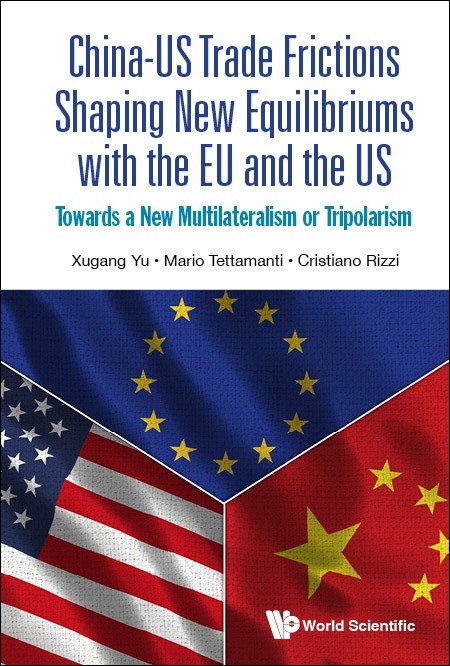System Upgrade on Tue, Oct 25th, 2022 at 2am (EDT)
Existing users will be able to log into the site and access content. However, E-commerce and registration of new users may not be available for up to 12 hours.For online purchase, please visit us again. Contact us at [email protected] for any enquiries.
This book shows the impact of the recent trade tensions between China and the US on the world trade order, and how parties have reached a deal (so called "phase one", January 2020), which could lead to a more comprehensive agreement, and the consequences of these "adjustments" in shaping new equilibriums.
After 40 years, China has transformed into an economic superpower, which could now rival the US. This has evoked some concerns, and put the US in an uncomfortable position, as the US views the rise of China as a threat to its predominance and interests. However, China's development and its increasing economic power, which is a direct consequence of the ongoing reform process, is unstoppable.
The confrontation between China and the US will favor Chinese expansion into the EU not only because the EU offers a more receptive environment for Chinese Foreign Direct Investment, but also because the EU and China have more in common if we consider the Belt And Road Initiative and the new bilateral investment agreement which is under negotiation. The EU, not only represents the final destination of the BRI, but also a more logical and convenient trade partner for China.
The shift of Chinese attention toward the EU will also change the equilibrium between China, the EU and the US, bring forth the negotiation of new trade agreements, and move the entire international community towards a new world trade order and a new multilateralism which might evolve into a tripolarism.
Sample Chapter(s)
Preface
Introduction
Contents:
- Introduction (Cristiano Rizzi)
- Role of Reforms in China's Rise and the Need to Build a Peaceful Coexistence to Avoid other Trade Wars (Xugang Yu))
- Trade Confrontation between China and the US: Understanding the Background and Respective Positions (Xugang Yu and Cristiano Rizzi)
- Prolonging or Resurgence of the US–China Trade Confrontation: Possible Consequences and Implications for Europe (Cristiano Rizzi & Mario Tettamanti)
- China–EU Reinforced Trade Relations: A Consequence of the Trade Tensions Between China and the US (Cristiano Rizzi and Mario Tettamanti)
- Surge in Investments in the EU by Chinese Companies: M&A as the Preferred Method (Cristiano Rizzi)
- Progress of the RMB as an International Currency (Mario Tettamanti)
- Shaping a New International Trade Order with the EU–China BIT and a Possible US–China BIT: Is Multilateralism Transforming into Tripolarism? (Cristiano Rizzi)
- Conclusion (Cristiano Rizzi)
Readership: For the international community and all countries doing business with China, as well as policy makers and diplomats who would like to strengthen relations with China.
Chapter 1: Role of Reforms in China’s Rise and the Need to Build a Peaceful Coexistence to Avoid other Trade Wars
- Pages:3–52
Chapter 2: Trade Confrontation between China and the US: Understanding the Background and Respective Positions
- Pages:53–91
Chapter 3: Prolonging or Resurgence of the US–China Trade Confrontation: Possible Consequences and Implications for Europe
- Pages:93–140
Chapter 4: China–EU Reinforced Trade Relations: A Consequence of the Trade Tensions Between China and the US
- Pages:141–186
Chapter 5: Surge in Investments in the EU by Chinese Companies: M&A as the Preferred Method
- Pages:187–231
Chapter 7: Shaping a New International Trade Order with the EU–China BIT and a Possible US–China BIT: Is Multilateralism Transforming into Tripolarism?
- Pages:285–332
Sample Chapter(s)
Preface
Introduction




